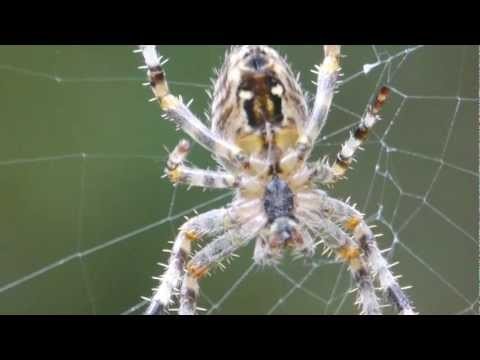By James Ryan Morales, | January 10, 2017

A group of researchers from Sweden used proteins from E.coli to spin artificial spider silk. (YouTube)
Scientists have successfully produced synthetic spider silk made from proteins of the E.coli bacteria. The final product is light and biodegradable but stronger than steel. It is expected to open up possibilities in engineering and other fields.
This is another milestone in the avenue of Biomimicry, a branch of scientific research which deals with imitating the capacities and knowledge found in nature. The natural spider silk is about 30 times thinner than human hair but is stronger than Kevlar.
Like Us on Facebook
The main ingredient that spiders use in making their webs are proteins secreted from a narrow duct in their bodies. As these proteins become exposed, the molecules link and form chains. Investing in natural spider silk for industrial use is quite impossible because of the difficulty of farming them.
However, a group of researchers from Sweden used proteins from E.coli to spin artificial spider silk. A spinning apparatus was used to mimic the acidity and pressure change of the proteins as they are released. One liter of E.coli can reportedly produce a kilometre-worth of spider silk.
The good thing about this is that the process is non-harmful, according to the co-author of the study, Jan Johansson of Swedish University of Agriculture Sciences in Uppsala.
The newfound product can open great possibilities - and possibly some might be thinking of Peter Parker aka Spiderman's web slinging apparatus at the bottom of his palms. The artificial spider silk could be used for regenerative medicine, like repairing the spinal cord or a damaged heart. It can also make engineering wonders, as well as light-weight but durable clothing.
-
Use of Coronavirus Pandemic Drones Raises Privacy Concerns: Drones Spread Fear, Local Officials Say

-
Coronavirus Hampers The Delivery Of Lockheed Martin F-35 Stealth Fighters For 2020

-
Instagram Speeds Up Plans to Add Account Memorialization Feature Due to COVID-19 Deaths

-
NASA: Perseverance Plans to Bring 'Mars Rock' to Earth in 2031

-
600 Dead And 3,000 In The Hospital as Iranians Believed Drinking High-Concentrations of Alcohol Can Cure The Coronavirus

-
600 Dead And 3,000 In The Hospital as Iranians Believed Drinking High-Concentrations of Alcohol Can Cure The Coronavirus

-
COVID-19: Doctors, Nurses Use Virtual Reality to Learn New Skills in Treating Coronavirus Patients







